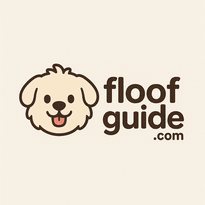Is your adorable puppy turning into a tiny, furry land shark? Don't worry, you're not alone! Puppy teething is a normal (but often frustrating) stage. But when does the nipping and chewing end?
The Teething Timeline: A Puppy's Journey to Adult Teeth
Understanding the timeline of puppy teething helps manage expectations and provides appropriate care.
Baby Teeth Arrive (Around 2-4 Weeks)
Puppies are born without teeth! Their baby teeth, also known as milk teeth or deciduous teeth, start erupting around 2 to 4 weeks of age. These are sharp and pointy, perfectly designed for nursing.
Losing Baby Teeth (Around 12-16 Weeks)
This is when the real fun begins (or the real chewing, at least). As your puppy's adult teeth start to develop, they push out the baby teeth. You might find these tiny teeth around the house or, more likely, your puppy will swallow them.
Adult Teeth Emerge (Around 4-6 Months)
By the time your puppy is around 4 to 6 months old, most of their adult teeth should be in. This is when the teething biting is at its peak! They are experiencing discomfort as those new, big teeth erupt through their gums. This is usually when owners are asking, "When will this EVER end?!"
Teething Complete (Around 6-8 Months)
Generally, puppies have a full set of adult teeth by the time they are around 6 to 8 months old. The excessive chewing and nipping should subside significantly around this time. It's a joyous occasion for both you and your furniture!
Signs Your Puppy is Teething
- Excessive chewing on furniture, shoes, or anything they can get their paws on.
- Drooling more than usual.
- Red or swollen gums.
- Whining or irritability.
- Loss of appetite (due to sore gums).
- Increased need to bite or mouth objects and hands.
How to Help Your Teething Puppy
Dealing with a teething puppy requires patience and the right tools. Here's how to make this stage more comfortable for both of you:
- Provide appropriate chew toys: Offer a variety of textures and materials. Consider rubber toys, rope toys, or even frozen washcloths.
- Freeze toys: Freezing chew toys can provide soothing relief to sore gums. Soak a rope toy in water and freeze it for a long-lasting chew.
- Offer frozen treats: Small pieces of frozen fruits or vegetables (like carrots or bananas) can be a healthy and soothing treat.
- Protect your belongings: Keep valuable items out of reach. Puppy-proof your home by removing anything you don't want chewed.
- Redirect biting: When your puppy starts nipping at you, redirect their attention to a chew toy. Gently remove your hand and offer the toy instead.
- Gentle gum massage: Gently rub your puppy's gums with your finger. Some puppies find this very soothing.
- Consult your vet: If you're concerned about excessive bleeding, pain, or any other unusual symptoms, consult your veterinarian.
Important Considerations
- Biting is usually teething-related: It's important to differentiate between teething-related nipping and aggressive biting. If you're concerned about aggressive behavior, consult a professional dog trainer or behaviorist.
- Consistent Training is Key: Start training early and be consistent with commands. Teaching your puppy basic commands like "leave it" can be invaluable during the teething phase.
- Dental Care Starts Early: Even though they're just puppies, early dental care is important. Get them used to having their mouth and teeth handled, so brushing their teeth as adults will be easier.
Teething is a temporary phase. With patience, the right tools, and a little understanding, you and your puppy can get through this stage unscathed. Enjoy the puppyhood, and remember those adorable adult teeth will be flashing a smile soon enough!

